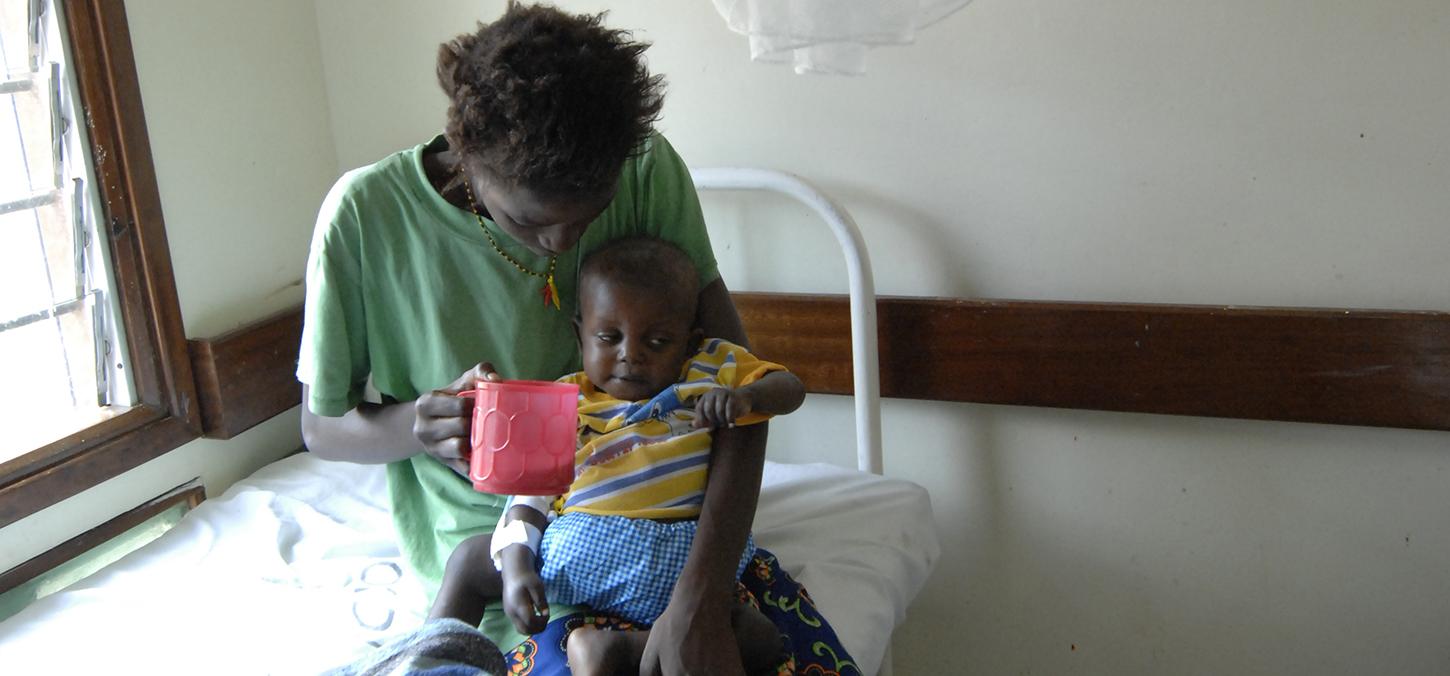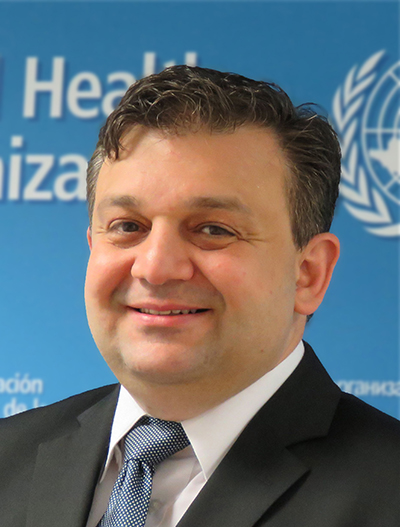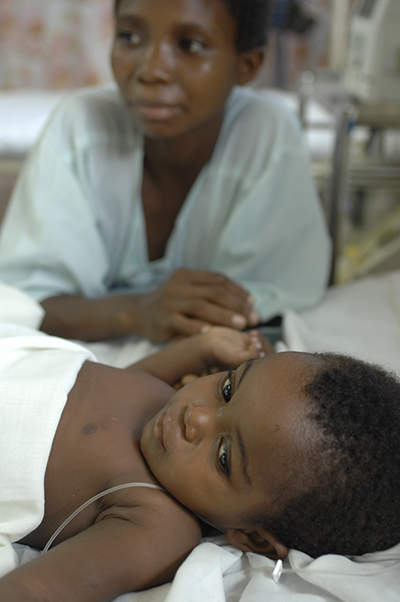
'I know our work saves lives every day'
Meet a Dentistry prof and alumnus at the World Health Organization with a critical role in fighting infectious diseases – including COVID-19

Dentistry alumnus and adjunct professor Dr. Garry Aslanyan teaches dental public health to the next generation of dental professionals at the Faculty of Dentistry. In his main role at the World Health Organization, Aslanyan has worked to control or eliminate outbreaks of some of the world’s most deadly infectious diseases. Now, he’s drawing on his skills in building critical research capacity and partnerships to battle a global pandemic: COVID-19.
What is your role at the WHO?
I am the Manager of Partnerships and Governance for the WHO’s special programme on research and training on tropical diseases. I’ve been in the role for a while now, although the amount of work has gone up in the last few years.
Our program supports research capacity in low- and middle-income countries that help control infectious diseases, both in terms of outbreaks as well as [research into] diseases such as malaria, tuberculosis, dengue, zika virus and others. We also support research that provides evidence to countries in their effort to control these diseases, improve implementation of certain programs or answer health policy questions on how to design or organize their public health and care services.
At the WHO, you’ve built partnerships and research capacity during the last Ebola outbreak, as one example — how critical are these partnerships in successfully fighting epidemics or epidemics?
This is very critical. As a global programme of scientific collaboration of a broad network of partners, the capacity of countries to fight epidemics or pandemics is definitely much better now, and it is improving. For example, one of our programs uses a structural operational research and training approach to tackling health challenges. That program engaged over 800 professionals in over 60 countries.
Through our most recent communication with them, we know that about 302 of these professionals are involved in the COVID-19 response effort in various public health agencies in these countries as we speak. Even more gratifying is the fact that of those involved, 73% (219) are applying skills gained from their training and research they have done as part of this global program. Working in public health, we believe in building sustainable systems and institutions, and these kinds of outcomes illustrate the power and impact of our investments.
We must ensure that we accelerate desperately-needed COVID-19 research in those areas where the virus could wreak havoc on already-fragile health systems and cause the greatest health impact on vulnerable populations
What are some of the challenges and stakes around creating experimental drugs or vaccines to fight deadly outbreaks such as Ebola or, as in the current case, COVID-19?
One of the main challenges at the time of the Ebola outbreak related to drug or vaccine development work: there were ethical considerations for the use of unregistered interventions. We worked with research institutions in West and Central Africa after the Ebola outbreak in 2014 — as well as in South America after the Zika outbreak — to help local institutions to follow ethical criteria. These criteria include transparency in all aspects of care, fair distribution in the face of scarcity, involvement of the community and most importantly, the assessment of risk and benefit from the available information.
This approach is now being used in [participating] countries, and I am confident that, in countries with limited research capacity where we worked during the Ebola and Zika outbreaks, the capacity is now there to follow and consider ethical issues that benefit the people.

What is it like working at the WHO these days — what is the current mood? Is the organization focusing all its efforts on COVID-19?
The WHO country offices are working with partner governments, ministries of health and other public health agencies, providing critical support to ensure countries can rely on the WHO’s guidance, that will help them to prepare and mitigate the risk of this pandemic.
Here at the WHO headquarters in Geneva, the staff has to work from home, but with the same if not higher intensity. For me personally, working from home is not very different, as in the course of a year we work with close to 900 individuals with whom we keep in constant virtual contact. But of course, certain projects are paused as our focus has shifted to the immediate needs caused by COVID-19.
More specifically, my programme, TDR, joined the COVID-19 Clinical Research Coalition, which aims to accelerate research on COVID-19 in resource-limited settings. This is very important, as we must ensure that we accelerate desperately-needed COVID-19 research in those areas where the virus could wreak havoc on already-fragile health systems and cause the greatest health impact on vulnerable populations. We are also helping in development of a customized training course on good clinical practices for research teams in all hospitals participating in the WHO Solidarity on COVID-19 treatment trials.
As you may have heard from the news, these trials are taking place in various countries, including Canada, and compare four treatment options against standards of care to assess their relative effectiveness against COVID-19. By enrolling patients in multiple countries, the Solidarity trial aims to rapidly discover whether any of the drugs slow disease progression or improve survival. The four most promising therapies included in the trial are: Remdesivir, Lopinavir/Ritonavir, Lopinavir/Ritonavir with interferon beta and Chloroquine. We are also working with WHO’s Chief Scientist in reviewing daily research publications that then are included in the WHO Database of Publications on COVID-19.
As a Canadian working at the WHO, I feel proud of our work. I know our work saves lives every day.
In recent days, the WHO has been defunded by the US. In your opinion, how important is it that the WHO remain a globally funded health infrastructure?
As an organization of member states, the WHO is, in a way, owned by its members: we are both funded by, and provide support to, our member states. Unfortunately, that also means we are vulnerable to our member states’ politics. All countries — and the WHO itself — will have to review what actions were taken and how. This will help us to learn and improve our future emergency responses. I worked at two federal departments in Ottawa prior to my current job and I know how hard public health professionals work to ensure the health of populations. It is extremely important that the WHO is not weakened at this moment but strengthened. As a Canadian working at the WHO, I feel proud of our work. I know our work saves lives every day.
Casting a look into the future, what sorts of changes do you anticipate the current outbreak will have on global health, or even the way we live?
Global health has already been become better understood. For Canada, SARS was a wakeup call. I have a feeling this shift will continue even more rapidly and the artificial barriers between local and global, rich and poor country-approaches to public health will be erased. I also have a feeling more people will understand the value of public health. There is a lot of work to do of course, but the work of anti-vaccinationists and anti-fluoridationists will be harder. We will need to build on this moment to ensure sound and scientific approaches to the way we prevent outbreaks and maintain health populations.
Top photo: Mother and baby at the Kenya Medical Research Institute. (WHO/TDR); Portrait: Dr. Garry Aslanyan (WHO/TDR)